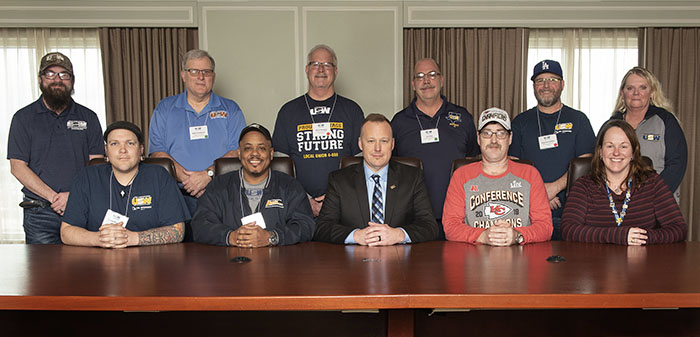Workers in the oil and petrochemical industry voted to include wages, health care, severance package language, investment in decarbonization and other proposals in the 2022 National Oil Bargaining Program (NOBP) policy for bargaining with the industry next January.
Local union delegates met virtually Aug. 9-13 for the NOBP conference to hear updates from the union, participate in presentations about the industry, discuss labor law and mobilization, and meet in their company councils to discuss contract proposals for national bargaining.

The rank-and-file NOBP Policy Committee discussed the council proposals and developed the list of policy items, which the delegates approved in voting on the last day of the conference.
The locals have 45 days after the conference to present the NOBP policy and have their members vote on it. The national bargaining policy is considered ratified when 75 percent of the locals that vote approve it. Approving the policy also gives authorization to call for a strike over national issues if necessary.
The current three-year agreement expires at 12:01 a.m. on Feb. 1, 2022. Marathon will lead negotiations with the USW and set the bargaining pattern for the rest of the industry.
During local bargaining, locals will address issues pertaining to their own facility, and the company councils work together to press for bargaining issues that impact their company across all its locations.
Twenty petrochemical plants, owned by 12 different companies, are part of NOBP. They include ChevronPhillips, Ineos and International Waxes. Most are located near the Gulf coast. The pattern agreement covers more than 30,000 USW members in the union’s oil and petrochemical sector.
